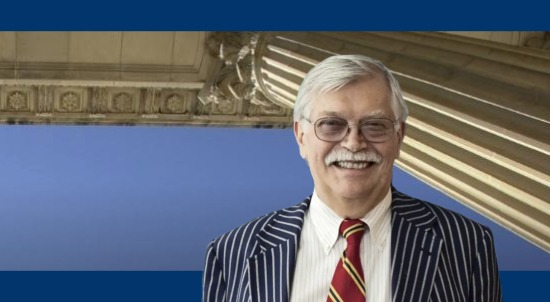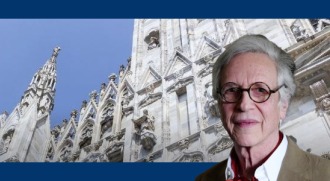Immanuel Kant, “What is Enlightenment?” The Basic Writings of Kant, ed. Allen W. Wood (New York: The Modern Library, 2001): 135-141.
Fyodor Dostoevsky, Notes from the Underground, trans. Mirra Ginsburg (New York: Bantam Classic, 2005): 18-34.
Isaiah Berlin, “The Philosophers of the Enlightenment” and “The Essence of European Romanticism,” The Power of Ideas, ed. Henry Hardy (Princeton and Oxford: Princeton University Press, 2000): 36-52, 199-204.
G.W.F. Hegel, The Phenomenology of Spirit, trans. A. V. Miller (Oxford and New York: Oxford University Press, 1977): 1-14 (paragraphs 1-25) ,116-117 (paragraphs 191-194).
G.W.F. Hegel, preface to The Philosophy of Right, Hegel: The Essential Writings, ed. Frederick G. Weiss (New York: Harper and Row, 1974): 256-265.
Angela Davis, Lectures on Liberation (New York: Committee to Free Angela Davis, 1971); https://archive.org/details/AngelaDavis-LecturesOnLiberation
Karl Marx and Friedrich Engels, “Manifesto of the Communist Party” in Modern Europe: Sources and Perspectives from History, ed. John S. Swanson and Michael S. Melancon (New York: Longman, 2002): 72-88.
Friedrich Nietzsche, “Gay Science,” “Thus Spake Zarathustra,” “The Will to Power,” and “Ecce Homo,” Existentialism from Dostoevsky to Sartre, ed. Walter Kaufmann (New York: Meridian, 1975): 125-133.
V.I. Lenin, What Is to Be Done? (New York: International Publishers, 1969): 28-34.
Henri Bergson, Time and Free Will, trans. F. L. Pogson (London: George Allen and Unwin, 1910): 99-106.
Henri Bergson, “Concerning the Nature of Time,” Henri Bergson: Key Writings, ed. Keith Ansell Pearson and John Mullarkey (New York: Continuum, 2002), 215-217.
Sigmund Freud, Introductory Lectures on Psychoanalysis, trans. James Strachey (New York: W. W. Norton and Company, 1989): 17-28; 375-396.
F.T. Marinetti, “Words-in-Freedom” (1914); http://www.unknown.nu/futurism/destruction.html (accessed 5 November 2003).
D. Burliuk, A. Kruchenykh, V. Mayakovsky, V. Khlebnikov, “A Slap in the Face of Public Taste,” in Words in Revolution: Russian Futurist Manifestoes 1912-1928, ed. and trans. Anna Lawton and Herbert Eagle (Washington, DC: New Academia Publishing, 2004): 51-52.
Tristan Tzara, “Dada Manifesto,” Between Worlds: A Sourcebook of Central European Avant-Gardes, 1910-1930, ed. Timothy O. Benson and Éva Forgács (Cambridge: MIT Press, 2002): 313-317.
Viktor Shklovsky, “Art as Device” in Theory of Prose, trans. Benjamin Sher (Normal, IL: Dalkey Archive Press, 1990): 1-14.
Edmund Husserl, Introduction to Transcendental Phenomenology [the Paris lectures], trans. Cyril Welch (Sackwill, New Brunswick: Atcost Press, 2003), 1-36.
Martin Heidegger, “My Way to Phenomenology,” Existentialism from Dostoevsky to Sartre, ed. Walter Kaufmann (New York: Meridian, 1975): 234-241.
Martin Heidegger, Being and Time, trans. John Macquarrie and Edward Robinson (San Francisco: HarperCollins, 1962): 19-35 (paragraphs 1-4), 78-86 (paragraph 12), 163-168 (paragraph 27), 219-224 (paragraph 38), 228-235 (paragraph 40), 304-311 (paragraph 53), 434-439 (paragraph 74).
Jean Paul Sartre, “Existentialism is a Humanism,” Existentialism from Dostoevsky to Sartre, ed. Walter Kaufmann (New York: Meridian, 1975): 345-369.
Max Horkheimer, “The State of Contemporary Social Philosophy and the Tasks of an Institute for Social Research,” The Weimar Republic Sourcebook, ed. Anton Kaes, Martin Jay, and Edward Dimendberg (Berkeley: University of California Press, 1994): 318-322.
Theodor Adorno and Max Horkheimer, Dialectic of Enlightenment, trans. John Cumming (New York: Continuum, 1996): 3-13.
Herbert Marcuse, Eros and Civilization (Boston: Beacon Press, 1966): 78-105.
Angela Davis, “Angela Davis on Protest, 1968, and Her Old Teacher, Herbert Marcuse,” Literary Hub (3 April 2019)
Hannah Arendt, “Total Domination,” The Portable Hannah Arendt, ed. Peter Baehr (New York: Penguin Books, 2003): 119-145.
Hannah Arendt, “Organized Guilt and Collective Responsibility,” The Portable Hannah Arendt, ed. Peter Baehr (New York: Penguin Books, 2003):146-156.
Simone de Beauvoir, Memoirs of a Dutiful Daughter, trans. James Kirkup (New York: HarperPerennial, 1959): 5-25, 337-345.
Simone de Beauvoir, “Introduction,” “The Psychoanalytic Point of View,” “The Point of View of Historical Materialism,” and “Conclusion,” The Second Sex, trans. H.M. Parshley (London: Vintage Books, 1997); 13-29, 69-91, 725-741.
Franz Fanon, Black Skin, White Masks, trans. Richard Philcox (New York: Grove Press, 2008): 89-119 (chapter 5, The Lived Experience of the Black Man), 191-197 (chapter 7, B. The Black Man and Hegel); 198-206 (chapter 8, By Way of a Conclusion).
Emmanuel Levinas, Totality and Infinity, trans. Alphonso Lingis (Pittsburgh: Duquesne University Press, 2007): 33-40, 79-81.
Edith Stein, “Life in a Jewish Family,” The Collected Works of Edith Stein vol. 1, ed. Dr. L. Gelber and Romaeus Leuven, trans. Josephine Koeppel (Washington, DC: ICS Publications, 1986): 269-283.
Edith Stein, On the Problem of Empathy, trans. Waltraut Stein (Washington, DC: ICS Publications, 1989): 56-89 (chapter III, part 5, “Transition to the Foreign Individual”).
Stanislav Aseyev, The Torture Camp on Paradise Street, trans. Zenia Tompkins and Nina Murray (Cambridge: HURI, 2023): 183-190) (chapter 18, “Who Are These People?”).
Karel Kosík, “The Dialectic of Morality and the Morality of the Dialectic,” The Crisis of Modernity, ed. James Satterwhite (Lanham: Rowman and Littlefield, 1995): 63-76.
Gajo Petrović, “Humanism and Revolution,” In the Name of Life: Essays in Honor of Erich Fromm, ed. B. Landis and E.S. Tauder (New York: Holt, Rinebhart and Winston, 1971): 288-298.
Leszek Kolakowski, “Responsibility and History,” Existentialism versus Marxism, ed. George Novak (New York: Delta, 1966): 280-295.
Claude Lévi-Strauss, chapter 2 “Structural Analysis in Linguistics and in Anthropology,” in Structural Anthropology, trans. Claire Jacobson and Brooke Grundfest Schoepf (New York: Basic Books, 1963): 31-54.
René Girard, The Scapegoat, trans. Yvonne Freccero (Baltimore: John Hopkins, 1986): 24-44.
Michel Foucault, The History of Sexuality vol. I, trans. Robert Hurley (New York: Vintage Books, 1990): 92-102.
Stephen Kotkin, “Speaking Bolshevik” in Magnetic Mountain: Stalinism as a Civilization (Berkeley: University of California Press, 1995): 198-237.
Jacques Derrida, “Structure, Sign, and Play in the Discourse of the Human Sciences,” Writing and Difference, trans. Alan Bass (Chicago: University of Chicago Press, 1978): 279-293.
David Grann, “True Crime: A Postmodern Murder Mystery,” The New Yorker (11 and 18 February 2008): 120-135.
Václav Havel, “The Power of the Powerless,” From Stalinism to Pluralism, ed. Gale Stokes (New York: Oxford University Press, 1996):169-174.
Martin Heidegger, “‘Only a God Can Save Us’: Der Spiegel’s Interview with Martin Heidegger,” The Heidegger Controversy: A Critical Reader, ed. Richard Wolin (Cambridge: MIT Press, 1993): 91-116.
Herbert Marcuse, letter to Martin Heidegger, The Heidegger Controversy: A Critical Reader, ed. Richard Wolin (Cambridge: MIT Press, 1993): 160-164.
Hannah Arendt, “Heidegger the Fox,” The Portable Hannah Arendt, ed. Peter Baehr (New York: Penguin Books, 2003): 543-544.
Leszek Kolakowski, “Emperor Kennedy Legend: A New Anthropological Debate,” Salamagundi 72 (fall 1986): 211-217.
Leszek Kolakowski, “A General Theory of Non-Gardening,” Harper’s Magazine (November 1990): 32.aHar
Agnes Heller, “The Question of Truth,” A Philosophy of History in Fragments (Oxford: Blackwell, 1993): 114-135.

 Marci Shore teaches modern European intellectual history. She received her M.A. from the University of Toronto in 1996 and her Ph.D from Stanford University in 2001; she taught at Indiana University before coming to Yale. Her research focuses on the intellectual history of twentieth and twenty-first century Central and Eastern Europe. She is the translator of Michał Głowiński’s The Black Seasons and the author of Caviar and Ashes: A Warsaw Generation’s Life and Death in Marxism, 1918-1968, The Taste of Ashes: The Afterlife of Totalitarianism in Eastern Europe, and The Ukrainian Night: An Intimate History of Revolution. In 2018 she received a Guggenheim Fellowship for her current book project, a history of phenomenology in East-Central Europe, tentatively titled “Eyeglasses Floating in Space: Central European Encounters That Came about While Searching for Truth.” She is a regular visiting fellow at the Institut für die Wissenschaften vom Menschen in Vienna. Presently she is co-curating a Public Seminar/Eurozine forum “On the Uses and Disadvantages of Historical Comparisons for Life” (title stolen from Nietzsche): https://publicseminar.org/essays/the-last-time-i-saw-them-new-democracy-seminar-forum/.
Full Biography
Marci Shore teaches modern European intellectual history. She received her M.A. from the University of Toronto in 1996 and her Ph.D from Stanford University in 2001; she taught at Indiana University before coming to Yale. Her research focuses on the intellectual history of twentieth and twenty-first century Central and Eastern Europe. She is the translator of Michał Głowiński’s The Black Seasons and the author of Caviar and Ashes: A Warsaw Generation’s Life and Death in Marxism, 1918-1968, The Taste of Ashes: The Afterlife of Totalitarianism in Eastern Europe, and The Ukrainian Night: An Intimate History of Revolution. In 2018 she received a Guggenheim Fellowship for her current book project, a history of phenomenology in East-Central Europe, tentatively titled “Eyeglasses Floating in Space: Central European Encounters That Came about While Searching for Truth.” She is a regular visiting fellow at the Institut für die Wissenschaften vom Menschen in Vienna. Presently she is co-curating a Public Seminar/Eurozine forum “On the Uses and Disadvantages of Historical Comparisons for Life” (title stolen from Nietzsche): https://publicseminar.org/essays/the-last-time-i-saw-them-new-democracy-seminar-forum/.
Full Biography



